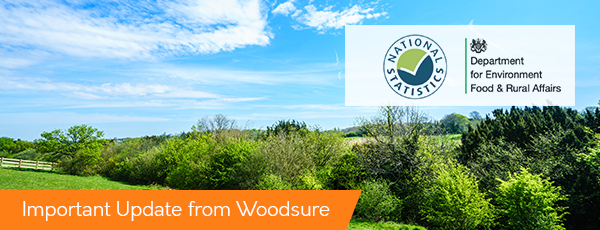A Family Run Business

Working together for a cleaner and safer environment
|
Defra publishes its latest data on emissions of air pollutants in the UK
|
|
Defra has published its latest data on 'Emissions of air pollutants in the UK', with the publication containing statistics on annual emissions for the period 1970 to 2022. The annual publication provides estimates of UK emissions of particulate matter (PM10 and PM2.5), nitrogen oxides, ammonia, non-methane volatile organic compounds, and sulphur dioxide. These statistics are used to monitor progress against the UK’s emission reduction commitments (ERC) for air pollutants.
The annual statistics identify:
The UK was compliant with international and domestic ERC for all pollutants. PM2.5 emissions were estimated to have decreased by 41% between 2005 and 2022, achieving compliance with ERC by an additional 11%.
Domestic combustion contributed an estimated 29% of total PM2.5 emissions in 2022 – an increase of 2% from 2021, with most emissions coming from households using wood burning stoves or open fireplaces. This follows an increase in 56% of emissions of PM2.5 and PM10 from domestic wood burning between 2012 and 2022 as a result of the growing popularity of domestic solid fuel appliances and the ban on domestic coal burning. Commenting on the latest publication, Woodsure CEO Bruce Allen:
“Defra’s annual report provides insight into the sources of emissions and the trajectory of environmental reduction commitments. The statistics demonstrate that domestic burning remains popular across the UK, highlighting the importance of responsible burning to minimise particulate matter emissions. It is positive to see the emission reduction commitments achieved for 2022 and we will continue to push forward progress, working diligently for a cleaner, safer environment.
With wood burning providing heat for many households across the UK, the importance of burning responsibly remains imperative. We know that upgrading open fireplaces and old wood burning stoves to modern, cleaner appliances, using Ready to Burn low moisture content fuel, will significantly reduce emissions and improve heat efficiency for homes. Additionally, it is important to understand the sources of air pollution from domestic burning. With government saying in their Environmental Improvement Plan that it is not considering a ban on domestic burning, we must take steps to ensure we all burn responsibly and work to minimise our emissions. HETAS and Woodsure will continue to communicate best burning practices; educated and informed consumers to produce less emissions whilst generating more efficient heat for their home. We continue to support government, devolved administrations, and other stakeholders to reduce emissions produced from domestic combustion, by using the right cleaner fuels in modern burning appliances.” To read our full response to the publication visit the Woodsure website.
|
